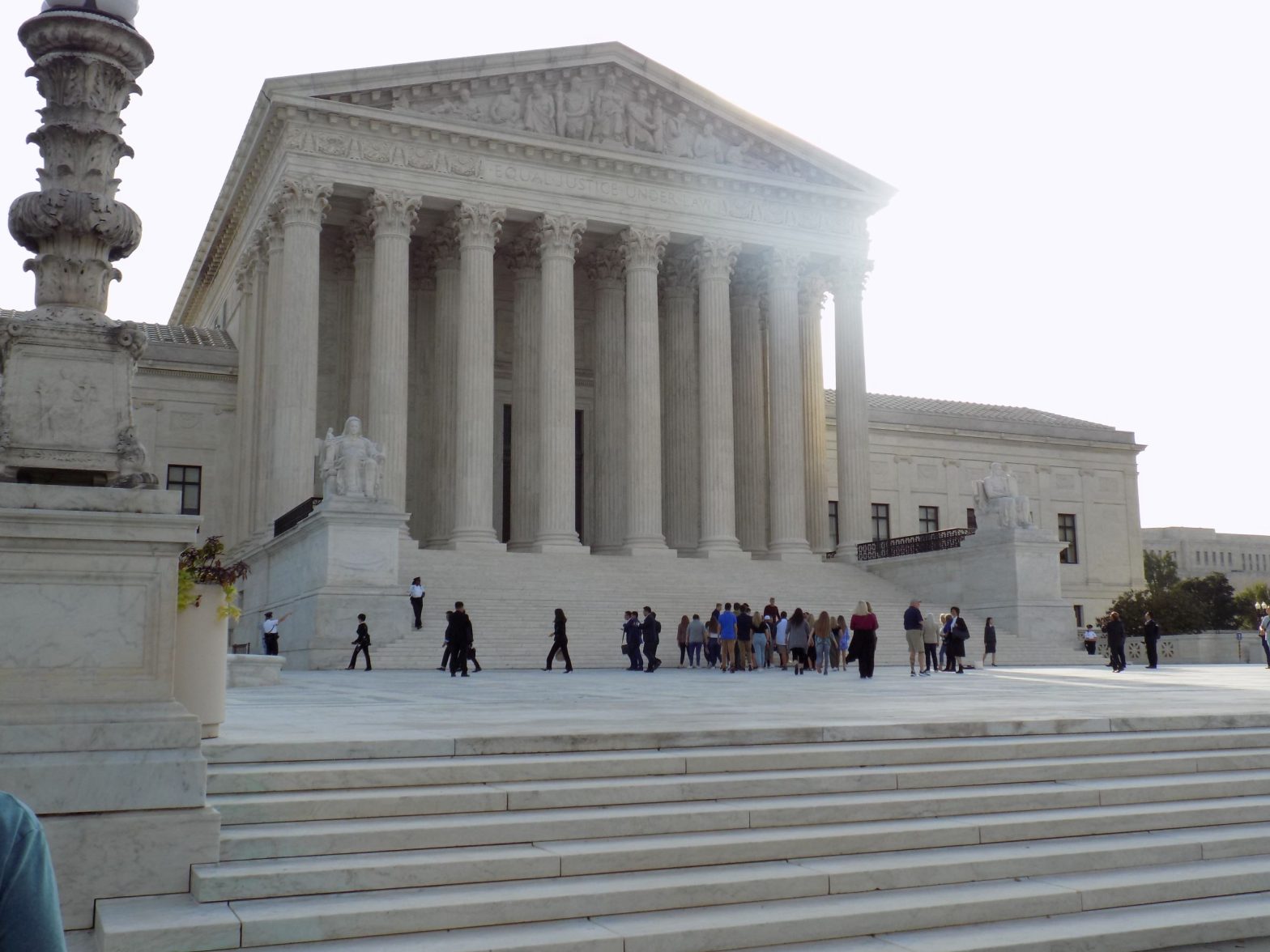Supreme Court Revives Biden Ghost Gun Restrictions

WASHINGTON — A divided Supreme Court on Tuesday revived the Biden administration’s restrictions on so-called “ghost guns,” temporarily allowing the government to require makers of the untraceable weapons kits to conduct background checks and add serial numbers to their products.
The Biden administration announced its plan to crack down on the weapons during a ceremony in the White House Rose Garden in April 2022, but a federal judge blocked the regulation in late June after concluding the Bureau of Alcohol, Tobacco, Firearms and Explosives would be exceeding its authority in enforcing the rule.
U.S. District Judge Reed O’Connor said the regulations would effectively treat firearms parts the same way the law currently treats completed and functional firearms.
“This case presents the question of whether the federal government may lawfully regulate partially manufactured firearm components, related firearm products, and other tools and materials in keeping with the Gun Control Act of 1968,” the judge wrote in the case, Vanderstok v. Garland.
“Because the court concludes that the government cannot regulate those items without violating federal law … the court vacates the Final Rule,” O’Connor said.
The 5th U.S. Circuit Court of Appeals later declined to pause the judge’s ruling, leading to an emergency appeal to the Supreme Court last month.
The high court’s 5-4 ruling arrived on its shadow docket, where such emergency cases are handled.
With Tuesday’s ruling, the court did not decide the legality of the new rule. Instead, the court simply allowed the regulation to stand while the case continues.
Justices Clarence Thomas, Samuel Alito Jr., Neil Gorsuch and Brett Kavanaugh would have denied the application for a stay, the brief ruling said.
The majority in the case did not explain its rationale for lifting the stay.
The Brady Campaign to Prevent Gun Violence defined “ghost guns” as unserialized and untraceable firearms that can be bought online as unassembled parts in kits and assembled at home.
“These kits are widely available and can be purchased by anyone, including prohibited purchasers, domestic abusers, and gun traffickers — without a background check,” the campaign says on its website. “As these kits and guns are sold at gun shows and online every day throughout the country, they undermine all of the life-saving policies that state legislatures have fought so hard to put in place.”
For his part, President Joe Biden has called “ghost guns” the weapons of choice for many criminals.
“We are going to do everything we can to deprive them of that choice and, when we find them, put them in jail for a long, long time,” he said last year.
Gun owners and gun advocacy groups, meanwhile, argue that rather than take matters into their own hands, administration officials should try to convince Congress to change the law.
In 2021 alone, the administration said at the unveiling of its new rules, there were approximately 20,000 suspected ghost guns reported to ATF as having been recovered by law enforcement in criminal investigations — a tenfold increase from 2016.
Because ghost guns lack the serial numbers marked on other firearms, law enforcement has an exceedingly difficult time tracing a ghost gun found at a crime scene back to an individual purchaser.
This final rule bans the business of manufacturing the most accessible ghost guns, such as unserialized “buy build shoot” kits that individuals can buy online or at a store without a background check and can readily assemble into a working firearm in as little as 30 minutes with equipment they have at home.
This rule clarifies that these kits qualify as “firearms” under the Gun Control Act, and that commercial manufacturers of such kits must therefore become licensed and include serial numbers on the kits’ frame or receiver, and commercial sellers of these kits must become federally licensed and run background checks prior to a sale — just like they have to do with other commercially made firearms.
The final rule also requires federally licensed dealers and gunsmiths taking any unserialized firearm into inventory to serialize that weapon.
For example, if an individual builds a firearm at home and then sells it to a pawn broker or another federally licensed dealer, that dealer must put a serial number on the weapon before selling it to a customer.
This requirement will apply regardless of how the firearm was made, meaning it includes ghost guns made from individual parts, kits or by 3D-printers.
Dan can be reached at [email protected] and at https://twitter.com/DanMcCue
























